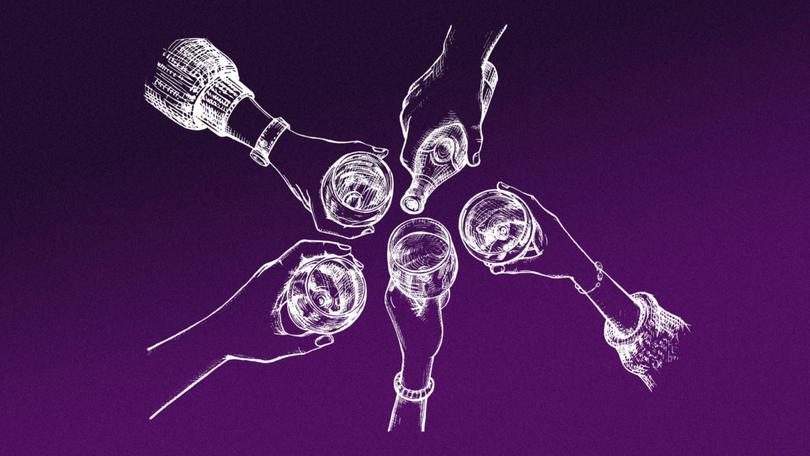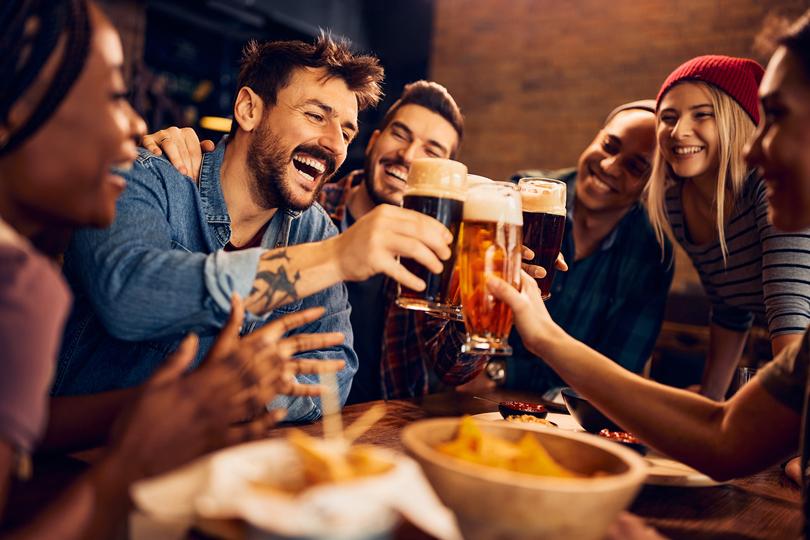JENI O’DOWD: It’s time for older generations to learn from Gen Z & rethink their social alcohol habits
JENI O’DOWD: Australia’s love affair with alcohol is no secret — coming into work hungover after a big night out used to earn you a badge of honour. But things are changing.

Australia’s love affair with alcohol is no secret — coming into work hungover after a big night out used to earn you a badge of honour. From the iconic backyard BBQ to after-work drinks at the pub, alcohol isn’t just a way to unwind; it’s woven into our social fabric.
Anyone who knows me would agree I’ve enjoyed my fair share of drinks over the years, from cocktails with friends on a Saturday afternoon to wine after work.
I can still recall working my way through the entire margarita menu one long afternoon.
Sign up to The Nightly's newsletters.
Get the first look at the digital newspaper, curated daily stories and breaking headlines delivered to your inbox.
By continuing you agree to our Terms and Privacy Policy.It started with the classic margarita, followed by a passionfruit margarita that was dangerously easy to drink and even a coconut margarita.
By the end, I’d sampled everything from spicy jalapeño to watermelon-infused cocktails.
Looking back, it’s clear how freely we used to drink, not just because we enjoyed it, but because it was almost expected.
However, with the cost of living skyrocketing and our health becoming more of a concern, many of us are starting to think twice before reaching for another round.
Lately, I’ve found myself questioning just how much of our social lives revolve around alcohol. What happens when one or two drinks turn into a harmful habit? Or when every get-together feels like it’s centred around booze?
For many middle-aged Australians, drinking remains tied to decades-old cultural norms, where alcohol was a fixture of professional and social life.
We were expected to drink with the boss after work, attend long, boozy lunches and socialise over late-night drinks with clients.
Has this turned us into a nation of middle-aged boozers?
Figures show that young Australians are drinking significantly less than their parents did at the same age, as older generations cement the nation’s reputation as some of the world’s heaviest drinkers.
Research from the National Drug and Alcohol Research Centre found that Australians are drinking less, largely driven by those under 30, while older Aussies either show no change in how much they drink or are actually increasing their drinking.
This was mirrored by the latest NHS figures released in Britain this week, showing middle-aged and retired people were drinking harmful levels of alcohol and risking many diseases.
In Australia, the number of young people abstaining from alcohol has risen, and fewer are turning their nights out into all-night drinking affairs.
This trend is so pronounced that in Sydney, some pubs now insist on a cover charge on weekends because the younger crowd isn’t drinking like previous generations.
As well, the stereotype of the rowdy, beer-chugging Aussie man no longer holds true. Today, it’s school mums enjoying wine o’clock, professionals meeting after work for a cocktail, and couples sharing a few bottles of wine every night when the kids are in bed.

This deeply ingrained culture has led to a rise in alcohol-related issues among older adults, including liver disease, mental health disorders, and increased hospital admissions. It’s enough to make anyone turn to sparkling water.
This is what happens when a drink or two turns into a harmful habit. But what happens when all your social events revolve around alcohol, with friends inviting you to bottomless birthday lunches and keg parties?
For many, it is a cause for anxiety and a fear they will be labelled a Debbie Downer for not joining in.
A close friend of mine faced this at a birthday lunch on Saturday — a bottomless cocktail lunch with school mums in their forties and fifties, known for their “drink till you drop” mentality.
My friend had been trying to cut back on alcohol for health reasons, but the pressure was relentless.
The cocktails, wine and shots flowed freely; almost as much as the calls of “Why aren’t you drinking?” and “Come on, it’s a special occasion!”
She ended up telling people her soda water was vodka and soda just to avoid the hassle. By 3pm, mums were crying, hugging each other and one even fell asleep on a nearby couch.
This lunch perfectly illustrates why Australia’s drinking rates are so high. Society not only normalises excessive drinking but also makes it difficult for anyone trying to pull back or abstain. Too often, alcohol is the glue that holds their gatherings together.
This pressure to drink, felt by many, isn’t just a personal struggle — it reflects a larger cultural issue that even public health campaigns have yet to fully address.
While much of the focus remains on youth drinking, the real challenge lies in tackling the deeply ingrained habits of middle-aged Australians, whose drinking habits are overlooked.
Campaigns like “Alcohol. Think Again” emphasise preventing underage drinking and targeting parents to discourage supplying alcohol to minors.
For example, the “We All Need to Say No” campaign encourages parents to refuse alcohol to their teens and highlights the impact of alcohol on the developing brain.
But it’s not the teens who are booking out bottomless brunches or keeping the wine and beer industries thriving; it’s often people like my friends and me, who still associate a good time with a few too many drinks.
I hate to say it, but if younger Australians are cutting back, maybe we could take a leaf out of their book and do it too.
We’re the ones driving these drinking statistics now, and maybe, just maybe, we could start celebrating the occasional sober Saturday night.
